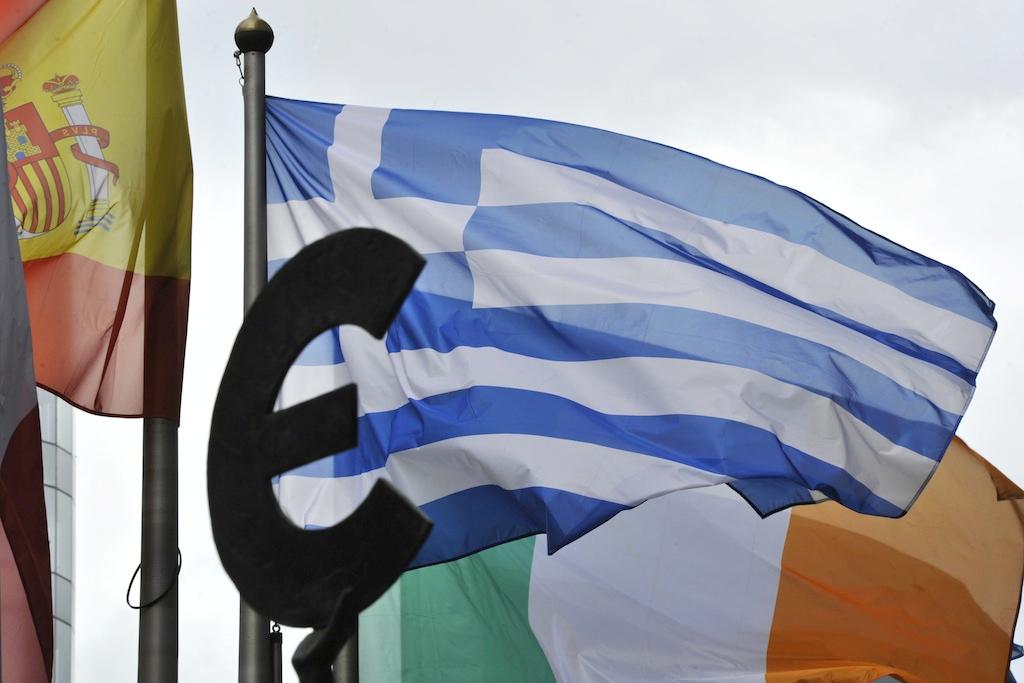This is why Europe is getting crushed today
Flags of the EU member states fly behind a statue of the euro sign in front of the European Parliament in Brussels. Today was particularly rough for the already struggling Eurozone.
Euro zone finance ministers officially signed off on a plan that's expected to provide about 100 billion euros ($120 billion) to Spain's troubled banks.
Investors had been calling for some kind of EU-led bailout for Spanish banks as depositors and investors began to pull their money out of Spanish accounts. That will include some 12 billion euros ($15 billion) in funding to help Spain's regions stay afloat.
But Spain is getting destroyed in the markets today, with the IBEX 35 down over 5 percent. And that's probably because the bailout is not as great as it officially appeared.
What's more, Spanish officials revealed today in a statement that the country will not return to growth until 2014, and will contract by 0.5 percent next year.
Last but not least, the autonomous community of Valencia said it will be the first to ask for aid.
One of the most concerning pieces of that bailout plan is the fact that Spain — and not a collective of EU countries and organizations — will be liable for the loans made by Europe's bailout funds to Spanish banks as part of this program.
Investors had hoped that the bailout would act to separate stress on the Spanish government from stress on its troubled banks, as Spain has a manageable public debt burden at 68.5 percent of GDP at the end of 2011.
While the new loan won't officially factor into Spain's debt-to-GDP ratio and it has very flexible terms, the fact that EU leaders are adding to the stress on a troubled country rather than absorbing the stress as a collective whole signals that there has been little change in EU leaders' crisis ideology.
Not to mention that Spain is a country that is not growing and faces mounting opposition to austerity policies that will come along with the bailout. The Memorandum of Understanding between EU leaders and the Spanish government gives the former some control over the way the latter manages its economic reforms, and so far the central European approach hasn't been working. Austerity has not been successful at renewing growth in peripheral Europe, despite any positive long-term implications.
That also bodes ill for other countries with governments and banks facing difficulty finding funding on the open markets. It's not surprising that the Italian FTSE MIB is also down 4.3 percent.
More from our partners at Business Insider:
Business Insider: A BBC Documentary About the London Riots was Banned by a Judge Who Never Even Watched It
Business Insider: Vicious Economic Power Struggle Rumored in North Korea
Business Insider: A French Company is Launching a New 'Aphrodesiac Drink' Named DSK
Business Insider: Here's How Much Olympic Athletes Really Get Paid
Business Insider: Iran Suspected of Planning At Least Nine Terror Attacks Against Israel This Year
The story you just read is accessible and free to all because thousands of listeners and readers contribute to our nonprofit newsroom. We go deep to bring you the human-centered international reporting that you know you can trust. To do this work and to do it well, we rely on the support of our listeners. If you appreciated our coverage this year, if there was a story that made you pause or a song that moved you, would you consider making a gift to sustain our work through 2024 and beyond?
